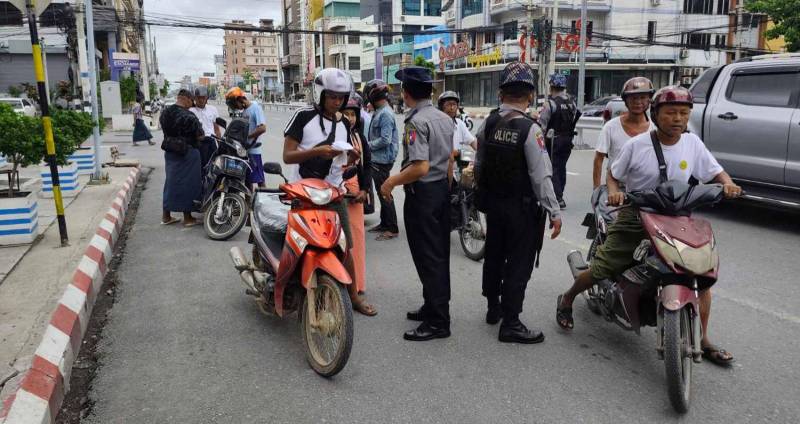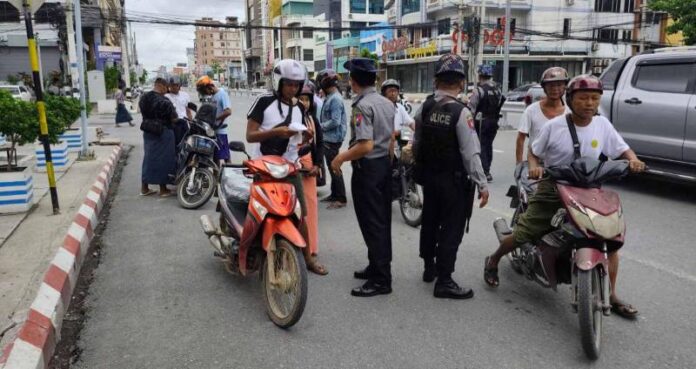At least 145 civilians were arrested by the military junta across Mon, Karen, and Tanintharyi regions in June, according to a July 8 statement by the Human Rights Foundation of Monland (HURFOM). The group says that arbitrary arrests have increased significantly, with many linked to unlicensed motorbike crackdowns.
Of the total arrests, 55 were related to riding or owning unlicensed vehicles. In addition to conscription enforcement, the military junta has also carried out arbitrary arrests under accusations of having ties to resistance forces, HURFOM reported.
More than 90 of those detained remain in custody, with the majority being youths and young adults, said Nai Aue Mon, Director of HURFOM.

“Compared to April and May, the number of arrests in Mon State has increased. The primary reason is the crackdown on unlicensed motorbikes. After these arrests, the junta enforces the conscription law and targets youth they consider eligible—typically those aged 19 or 20. They arrest them and then send them to military training camps,” said Nai Aye Mon.
In June, local traffic police, regular police, and joint task forces set up checkpoints across busy areas in Mon State to inspect motorbikes. Those who failed to meet junta-imposed regulations were fined or detained, and in some cases imprisoned.
According to HURFOM’s data, Mon State accounted for 60% of the arrests in June, followed by Tanintharyi Region with 35%, and Karen State with 5%. The group noted that the real numbers may be higher, as many arrests take place in hard-to-reach areas.
Many of those released were only freed after their families paid bribes ranging from 3 million to 8 million kyats to military authorities.
“The more arrests they make, the more pressure it puts on parents. They are forced to pay bribes to get their sons or daughters released from illegal military conscription. There’s also intimidation involved. And it’s not just about the people—they’ve confiscated over 100 motorbikes, many of which haven’t been returned,” Nai Aue Mon added.
The junta’s intensified vehicle checks have led to a broader loss of freedoms, including restricted movement and limitations on free expression.
Digital rights monitors also noted that surveillance and arrests are increasing in areas tightly controlled by the junta. Authorities are now relying heavily on digital surveillance, especially through social media, to track and detain individuals.
In June 2025 alone, HURFOM recorded 145 arbitrary arrests, 90 detentions, 93 reported injuries, and 38 extrajudicial killings across Mon, Karen, and Tanintharyi regions.

